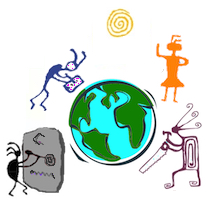Discussions about unequal power dynamics in international humanitarian aid and development systems have entered the mainstream and become much more prevalent. Local people in communities that are the target of such international aid have become increasingly vocal about the ways in which power and resources in the system remain dominated by, and between, certain organizations and relationships largely based in the “Global North” or “the West” – meaning North America, Europe, Australia and New Zealand.
Aid flows between former colonial powers and former colonised regions often mirror their past colonial relationships, with decision-making power concentrated in the Global North.
Structural racism is so deeply embedded in the everyday culture and working practice of those in the sector that it has affected the way local staff regard their own communities and how they engage with INGOs.
In November 2020, Peace Direct, Adeso, the Alliance for Peacebuilding, and Women of Color Advancing Peace and Security held a three-day online consultation with 158 activists, decision-makers, academics, journalists and practitioners across the globe. Participants and guest contributors exchanged insights and local experiences on the current power dynamics and imbalances that exist within the humanitarian, development and peacebuilding sectors. They discussed how structural racism manifests itself in their work, and how they envision a decolonised system that is truly inclusive and responds to their needs. The consultation received more than 350 detailed comments across nine discussion threads. This report presents the findings and recommendations from that consultation:
Time to Decolonise Aid: Insights and Lessons from a Global Consultation.
There are many volunteering abroad programs focused on humanitarian, development and peacebuilding and, just like with paid staff, many of these programs also promote unequal power dynamics. If you want to better understand the backlash against international volunteering (not just voluntourism) and the “White Savoir” complex, this report is worth reading.
Also see:
My voluntourism-related & ethics-related blogs.
Teaching youth about poverty – teaching compassion or supremacy?
Systemic Exclusion in Volunteer Engagement.

